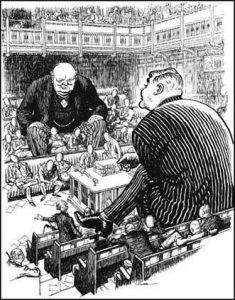A History of the National Health Service (NHS)
The National Health Service (NHS) is a nationalised healthcare system in the United Kingdom. Introduced in 1948, it comprises of free at the point of access medical care in Hospitals, Accident and Emergency units, via General Practitioners (GP’s) and via health visitors. It is designed to provide quality healthcare for all. Patients do not pay for emergency treatments, medical advice, periods in hospital or medical tests. originally patients were also entitled to free medication and free dentistry. This has since been amended and low, fixed fees apply for most patients for their prescriptions and Dental treatment. The NHS was a policy first debated during the war. It was opened in 1948.
When was the National Health Service introduced?
The act of Parliament that created the National Health Service had been passed in 1944. Several years of planning, negotiation and organisation of structures to enable the nationalisation of health services followed the legislation. The NHS officially began on July 5th 1948.
Why was the National Health Service introduced?
Before the war there were many different kinds of healthcare providers in the country. Access to medical care, even in emergencies, varied in terms of availability and quality across the country. The problems that this created were made very apparent by the onset of war and this added impetus to arguments for nationalisation of the health services in the United Kingdom. The proposed NHS was not the only reform put forward. During the war the coalition government had commissioned the Beveridge report. It made recommendations on all aspects of Welfare. This would build on the Liberal reforms and update the benefits gained from national insurance.
What opposition was there to the NHS?
Until shortly before the official launch of the NHS a majority of doctors were opposed to the idea. Aneurin Bevan, the Minister in charge of introducing the NHS, had to work very hard to make sure that doctors were happy with the arrangements. In particular there were concerns about workload, arrangements for continued private practice and concerns about how the system could be administered.
The time is now ripe for another great advance, and any one can see what large savings there will be in administration once the whole process of insurance becomes unified, compulsory and national. Here is a real opportunity for what I once called “bringing the magic of averages to the rescue of the millions,” therefore, you must rank me and my colleagues as strong partisans of national compulsory insurance for all classes, for all purposes, from the cradle to the grave.
“I have examined the Bill and it looks to me uncommonly like the first step, and a big one, to national socialism as practised in Germany. The medical service there was early put under the dictatorship of a “medical fuhrer” The Bill will establish the minister for health in that capacity.” BBC
What problems has the NHS experienced?
The main problem that the NHS has encountered is it’s own size. management of such a large organisation is always likely to be problematic and this has certainly been the case for the NHS. Demand for NHS services immediately exceeded expectations and the costs of provision have proven to be an issue of great concern and political debate ever since the services was introduced. Other problems have arisen in terms of staffing and availability of beds for patients, along with arguments about the cost of new drugs and treatments.
Government involvement in healthcare
The NHS is a prime example of Government involvement in health and medicine. Through the method of using taxation and national insurance to finance health the government has taken action to tackle health concerns. Previous examples of government intervention are less extensive. Germany as it unified prior to the First World War had some government intervention in health. This was largely in the form of insurance policies. In England, the healthcare provision had begun with the Elizabethan Poor Law which was amended in the 1830’s. This then was replaced by the Liberal reforms. Government involvement in Ancient times is also notable. Public Health in particular has been a state run issue, the Romans did so extensively.
Schoolshistory home – History teachers resources – Medical History Timelines – Liberal Reforms – Welfare State – The NHS – Alexander Fleming – Florey and Chain develop Penicillin – DNA and it’s impact on modern medicine
Medicine Through time – Resources for Medicine Through Time – Prehistoric Medicine – Ancient Egyptian Medicine – Ancient Greek Medicine – Medicine in the Roman Empire – Medieval Medicine – Renaissance Medicine – Public Health in the Industrial Revolution – Fight against infectious disease – Modern Medicine

